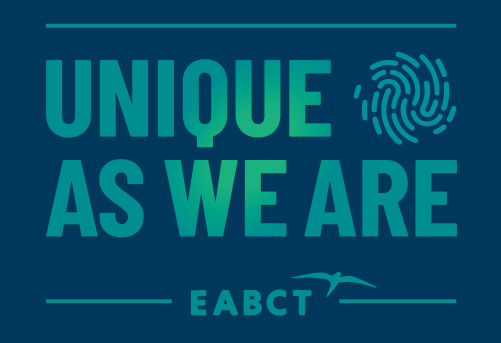Pre-Congress Workshops

Dr. Stefan G. Hofmann
Process-based Therapy
Dr. Stefan G. Hofmann
BIO
Prof. Dr. Stefan G. Hofmann is the Alexander von Humboldt Professor of Translational Clinical Psychology at the Philipps University of Marburg in Germany. He has been a Clarivate Highly Cited Researcher, has been the editor of Cognitive Therapy and Research, and is the incoming editor of Psychological Bulletin. He has published more than 500 peer-reviewed journal articles and 20 books on anxiety disorders, emotions, and evidence-based therapeutic practices.

Dr Nikolaos Kazantzis
Making Homework Work: Collaborative Strategies to Motivate and Tailor CBT Assignments
Dr Nikolaos Kazantzis
Cognitive Behavior Therapy Research Unit, Melbourne, Australia, and Beck Institute for Cognitive Behavior Therapy, Philadelphia, USA
Homework assignments are a crucial and defining aspect of CBT, yet clinicians often struggle to get clients to follow through. How can we make therapy homework uniquely engaging and motivating for our clients? This interactive full-day workshop dives deep into transforming one-size-fits-all homework into engaging, personalized “Action Plans.” Building on the principles for traditional CBT, we’ll use a practical model from Kazantzis et al. that breaks the process into four stages – Designing, Planning, Doing, and Reviewing – to systematically tailor homework for each client. Through this framework, you will learn to weave case formulation into every step, ensuring assignments fit the individual’s goals, life context, and learning style. Collaboration and motivation are emphasized at every turn: you’ll practice collaborative designing where therapist and client jointly design tasks, fostering the client’s sense of ownership and relevance. Research shows that when clients truly understand and accept the treatment rationale, they engage more fully in therapy and benefit more from homework. Accordingly, you will learn techniques to strengthen client buy-in – for example, using Socratic dialogue to help clients personally connect with the purpose of an assignment. We’ll also tackle common hurdles that derail homework. What if a client feels unmotivated, avoids the task, or simply forgets? You’ll try out strategies to boost intrinsic motivation by tapping into the client’s autonomy and sense of competence. Together, we’ll explore how to anticipate and troubleshoot obstacles before they derail progress. Throughout the day, two themes will echo: keep it collaborative and make it manageable. In this hands-on workshop, participants will practice how to:
• Design individualized assignments via case formulation: Craft homework tasks that directly target each client’s core issues and goals, making them more meaningful and eVective.
• Use collaborative planning and Socratic questioning: Involve clients in brainstorming their own tasks and use guided questions to enhance insight and commitment, turning homework into a truly joint venture.
• Boost motivation and overcome obstacles: Apply motivational interviewing tips and creative techniques (e.g. confidence scaling, identifying likely obstacles) to increase clients’ willingness to do homework, ensuring a high likelihood of success.
• Refine review and feedback techniques: Role-play the homework review process, learning to deliver positive reinforcement and to gently explore incomplete homework for learning opportunities – all while maintaining a supportive therapeutic alliance.
By the end of this full-day experience, you’ll have a toolkit of skills and confidence to energize your CBT practice. This workshop embodies the “Unique as We Are” EABCT 2026 Conference theme by empowering you to integrate research-backed strategies into personalized care, so that between-session work is tailored, motivating, and eVective for every client. Expect to leave with fresh ideas, hands-on practice, and renewed enthusiasm for making CBT homework work for your clients.
BIO
Dr. Nikolaos Kazantzis is a Professor of Clinical Psychology with appointments at the Cognitive Behavior Therapy Research Unit (CBTRU; Melbourne, Australia) and the Beck Institute for Cognitive Behavior Therapy (Philadelphia, USA), and is widely recognized as a leading figure in CBT for advancing evidence-based approaches to tailoring the therapeutic relationship and, in particular, optimizing patients’ engagement with between-session therapeutic tasks. His team’s work—grounded in CBTRU conceptual models and measures—has secured multiple U.S. National Institutes of Health (NIH) grants and produced over 200 scholarly publications, six clinician books, and 19 journal special issues; in 2019, the American Psychological Association (APA) recognized the team with its Top Downloaded Paper Award for the most-downloaded article across all 89 APA journals, out of more than 4,500 articles. He is the immediate past Editor-in-Chief of Cognitive and Behavioral Practice, currently serves as editor of Springer Nature’s “CBT: Science into Practice” book series, and has received the Beck Scholar Award from Dr. Aaron T. Beck and Dr. Judith S. Beck in recognition of his scholarly contributions; additional information is available at www.nikolaoskazantzis.com, www.cbtru.com, and https://link.springer.com/series/15752/books.

John Pachankis
Recognizing and responding to how and why LGBTQ clients are unique
John Pachankis
Whether and what distinct treatment approaches are needed for LGBTQ clients rests on how distinct we think LGBTQ people are from heterosexual cisgender people. This workshop will argue that LGBTQ people today experience distinct psychologies across life — starting with an early sense of felt difference from others, proceeding through an adulthood formed in communities with other LGBTQ people, and pursuing distinct sources of meaning and purpose. Although these differences might not rise to the level of requiring a unique treatment approach, they require a therapist who is knowledgeable about LGBTQ experiences and how these experiences shape LGBTQ people’s cognitive styles, affective reactions, and behavioral patterns. For example, these differences require a therapist who can detect how internal working models of self, other, and relationships are shaped by early experiences of felt difference and how the LGBTQ community itself shapes LGBTQ people’s characteristic behavioral and emotional adaptations to those experiences. LGBTQ people are also substantial consumers of mental health services — even more than their disproportionate burden of mental health problems would predict — so much so that there’s arguably a culture of therapy among this population — perhaps to fill relational voids not filled through valid mirroring of oneself-as-good that typically derives from family, parents, and community across development. Therapists must be prepared to fill that void. Of course, because LGBTQ people are made distinct by society, any unique therapy approach should probably home in on how society shapes the self and how to fix that problem imposed on LGBTQ people without losing a self, through accurate mirroring of oneself as good. This workshop will present the theory and techniques of LGBTQ-affirmative CBT to address the distinct experiences that LGBTQ people present in psychotherapy.
List three ways that society shapes LGBTQ people’s cognitions, affective responses to stress, and behavioral patterns.
Apply minority stress theory using a cognitive-behavior framework.
Demonstrate application of LGBTQ-affirmative cognitive-behavioral therapy principles.
Key references:
Pachankis, J. E., Soulliard, Z. A., Morris, F., & van Dyk, I. S. (2023). A model for adapting evidence-based interventions to be LGBQ-affirmative: Putting minority stress principles and case conceptualization into clinical research and practice. Cognitive and Behavioral Practice, 30(1), 1-17.
Pachankis, J. E., & Clark, K. A. (2024). The mental health of sexual minority individuals: Five explanatory theories and their implications for intervention and future research. Annual Review of Clinical Psychology, 21.
Pachankis, J. E. & Jackson, S. D. (2023). A developmental model of the sexual minority closet: Structural sensitization, psychological adaptations, and post-closet growth. Archives of Sexual Behavior, 52, 1869-1895.

Niki (Nicola) Petrocchi
Understanding and Transforming Self-Criticism in Compassion Focused Therapy: From Inner Attack to Inner Care
Niki (Nicola) Petrocchi
Self-criticism is a core transdiagnostic process strongly linked to shame and the maintenance of psychopathology across clinical populations. In this pre-conference workshop, we will explore how Compassion Focused Therapy (CFT) understands self-criticism through the lens of evolutionary psychology and social mentality theory. Rather than pathologizing self-criticism, CFT frames it as a survival strategy — one that has become overactivated in unhelpful ways, often within the context of early attachment and threat. A central focus of the workshop will be the role of psychoeducation in CFT. We will examine what we say to patients about the nature and function of self-criticism, and why this specific framing can itself begin to generate meaningful change. Participants will gain a clear understanding of how the three emotion regulation systems — threat, drive, and soothing — form the motivational framework of CFT, and how an internal rank-based relational dynamic, linked to shame and self-criticism, can create and maintain imbalances at the root of many forms of psychopathology. We will also demonstrate how compassion practices can soften self-critical tendencies and create the conditions for emotional safeness and change. Through experiential practice and clinical demonstration, participants will learn how to apply core CFT techniques, including compassionate letter writing, imagery-based work, and the mirror technique, to help patients develop a more compassionate inner dialogue. By the end of the workshop, clinicians will have a clear conceptual and practical understanding of how CFT addresses self-criticism, and how to support patients in moving from a shame-based inner dialogue to one grounded in compassion and care.
BIO
Niki (Nicola) Petrocchi, Ph.D., is Associate Professor of Psychology at John Cabot University (Rome) and Founder of Compassionate Mind Italia. She has published over 100 scientific papers and a manual on Compassion Focused Therapy. Her research and teaching focus on the psychophysiological bases of compassion and emotion regulation, integrating CFT and CBT approaches in both scientific and clinical contexts, with a particular interest in gender-diverse populations.

Willem Kuyken
Integrating Mindfulness Into Cognitive Behavioural Therapy
Willem Kuyken
BIO
Willem Kuyken is the Ritblat Professor of Mindfulness and Psychological Science at the University of Oxford, United Kingdom. His work focuses on preventing depression, promoting mental health, and flourishing across the lifespan. He has published more than 150 journal articles and was named by Web of Science as in the top 1% of the most cited scientists in the world every year since 2019.

Cecilia Essau
Preventing youth anxiety and depression: Lifestyle interventions and CBT-Based skills
Cecilia Essau
BIO
Cecilia A. Essau is Professor of Developmental Psychopathology at the University of Roehampton, UK. She recently received the Distinguished Contributions Award from the British Psychological Society Developmental Psychology Section for sustained and substantial contributions to research, translating to an impact on wider society. Cecilia has developed a program (Super Skills for Life; SSL) which equips children and adolescents with skills to deal with situations that would have caused them anxiety and been challenging. By using a “train-the-trainer approach”, SSL training has built capacity and shaped the practice of 26,000 practitioners and has produced positive mental health outcomes in approximately one million young people in 23 countries.

Ebru Salcioglu
Essential Skills for Transdiagnostic CBT in Everyday Clinical Practice
Ebru Salcioglu
BIO
Ebru Şalcıoğlu is Professor of Clinical Psychology at Istinye University in Türkiye and Adjunct Professor at Åbo Akademi University in Finland. She is the founder and director of DATEM – the Center for Behavioral Studies and Therapies – where she integrates clinical service, training, and applied research. After completing her PhD and post-doctoral training at the Institute of Psychiatry, King’s College London, she remained research-affiliated for over a decade—an academic foundation that continues to shape her scientific approach to clinical practice. A behavior therapist and academic, she is known for her work on the individualized application of evidence-based cognitive and behavioral therapies, with a focus on idiographic case formulation, functional analysis, and transdiagnostic intervention strategies. Her clinical and research experience spans trauma-related conditions, anxiety disorders, obsessive-compulsive spectrum problems, prolonged grief, and eating disorders, drawing on extensive work particularly with survivors of war, torture, natural disasters, and interpersonal violence. She has published widely on the mechanisms and treatment of trauma-related problems in peer-reviewed journals, and is the author of an extensively used Turkish-language book on case formulation and therapy planning, as well as co-author of a clinical volume on the behavioral treatment of war and torture trauma, published by Cambridge University Press. She is a frequent speaker at national and international scientific meetings and seminars, contributing to the advancement and dissemination of evidence-based therapies across academic and professional contexts. At DATEM, she developed a modular, formulation-based behavioral therapy model in which therapists deliver individualized, transdiagnostic care under routine supervision—a system that has shown meaningful recovery outcomes across a range of psychological difficulties in practice-based research. In addition to leading graduate-level programs in clinical psychology, she has developed and delivered a competency-based CBT training program that has supported hundreds of clinicians in applying evidence-based methods across diverse practice settings.

Paul Schobre
Between you and me: Dealing with patterns, building connection
Paul Schobre
A workshop on schematherapy for (high-conflict) couples to explore the dynamics between autonomy and connection in (romantic) relationships where one or both partners have been diagnosed with a personality disorder. This workshop focuses not only on dealing with the impact of these difficult dynamics on the therapist, but also attempts to provide tools for a possible therapeutic approach.
Bio
Paul Schobre (Belgium) is registered as a clinical psychologist and psychotherapist. He owns his own pracAce, and works both with individual clients as with couples and families. He is supervisor in CogniAve Behavioral Therapy (VVGT), Trainer-Supervisor in Schema Therapy for individuals and for couples (ISST & Schematherapie Vlaanderen vzw), Systemic Therapist (BVRGS), EMDR PracAAoner (EMDR- Europe). Inspired and moAvated by Professor Arnoud Arntz (University of Amsterdam) and the work of Jeffrey Young, he was one of the pioneers of schema therapy in Flanders. For almost a decade, he was chairman of Schematherapie Vlaanderen vzw.

Claudi L. Bockting
Preventive Cognitive Therapy for Depression: An Evidence-Based Approach to Reduce Relapse Risk: why and how
Claudi L. Bockting
Depression is a common mental health condition that is accompanied not only by a lot of personal suffering, but also by social or interpersonal problems. Research has shown that people who have recovered from an episode of depression or only partially remitted from depression, have a high risk of experience relapse. Preventive Cognitive Therapy (PCT) has been developed, specifically tailored to meet the needs of individuals who are in partial remission or those fully remitted. In this workshop the interventions that target risk factors for relapse including stress sensitivity, dysfunctional (cognitive) beliefs, and positive emotion regulation, will be discussed and demonstrated. The use of imagery and phantasy will be demonstrated as well as the scientific evidence for long term preventive effects up to 20 years. Also, the interventions can be practiced in a role play. The last part of the workshop will be devoted to a discussion on the future of relapse prevention for common mental health conditions.
Key references: Bockting C.L., (2025) Preventive Cognitive Therapy for Depression: An Evidence-Based Approach to Reduce Relapse Risk. October 13, 2025, Guilford Press, ISBN 9781462558452
Bockting, C. L., Klein, N. S., Elgersma, H. J., van Rijsbergen, G. D., Slofstra, C., Ormel, J., Buskens, E., Dekker, J., de Jong, P. J., Nolen, W. A., Schene, A. H., Hollon, S. D., Burger, H. (2018). The effectiveness of Preventive Cognitive Therapy while tapering antidepressants compared with maintenance antidepressant treatment and their combination in the prevention of depressive relapse or recurrence (DRD study): A three-arm randomised controlled trial. Lancet Psychiatry, 5(5), 401-410. https://doi.org/10.1016/S2215-0366(18)30100-7
Breedvelt, J. J. F., Karyotaki, E., Warren, F. C., Brouwer, M. E., Jermann, F., Hollandare, F., Klein, N., de Jonge, M., Klein, D. N., Farb, N., Segal, Z., Biesheuvel Leliefeld, K. E. M., Jarrett, R., Vittengl, J., Thase, M., Ma, H., Kuyken, W., Shallcross, A. J., van Heeringen, C., … Bockting, C. L. (2024). An individual participant data meta-analysis of psychological interventions for preventing depression relapse. Nature Mental Health, 2(2), 154–163. https://doi.org/10.1038/s44220-023-00178-x
Breedvelt, J., Warren, F. C., Segal, Z., Kuyken, W., & Bockting, C. L. (2021). Continuation of antidepressants vs sequential psychological interventions to prevent relapse in depression: An individual participant data meta-analysis. JAMA Psychiatry, 78(8), 868–875. https://doi.org/10.1001/jamapsychiatry.2021.0823
Gülpen, J., Breedvelt, J. J.F., van Dis, E. A.M., Geurtsen, G. J., Warren, F. C., van Heeringen, C., Hitchcock, C., Holländare, F., Huijbers, M. J., Jarrett, R. B., Jermann, F., de Jonge, M., Klein, D. N., Klein, N. S., Ma, S.H., Moore, M. T., Denys, D. A.J.P., Williams, J.M. G., Kuyken, W., & Bockting, C. L. (2025). Psychological interventions for preventing relapse in individuals with partial remission of depression: A systematic review and individual participant data meta-analysis. Psychological Medicine, 55, 1–11. https://doi.org/10.1017/S0033291725000157
Van Tol, M.-J., Kleef, R. S. van, Eike, R., Valen, E. van, Marsman, J.-B., Renken, R., Aleman, A., & Bockting, C. L. (2021). Neurocognitive mechanisms of change following Preventive Cognitive Therapy for preventing relapse in depression: A randomized controlled trial. PsyArXiv. https://doi.org/10.31234/osf.io/n8tvx
BIO
Claudi L. Bockting PhD is professor in Clinical Psychology in Psychiatry at the department of Psychiatry in Amsterdam University Medical Centers and is one of the founders and directors of the interdisciplinary Centre for Urban Mental Health of the University of Amsterdam in The Netherlands. She also works since over 30 years as a licensed clinical psychologist. Her lab focuses on finding potentially modifiable factors that can be targeted with innovative interventions to prevent or treat depression, anxiety and suicidality. Dr. Bockting developed Preventive Cognitive Therapy (PCT) as a treatment against relapse in depressive disorders and its effectiveness has been demonstrated in several randomized controlled trials and settings, with reported preventive effects up to 20 years.
She is the recipient of Fellowships at institutions such as Beck Institute International Scholarship Philadelphia, Institute for Advanced Study at the University of Amsterdam, and the World Health Organization.

Prof. Dr. Matthias Berking
Introduction to the Affect Regulation Training
Prof. Dr. Matthias Berking
BIO
Prof. Dr. Matthias Berking is Head of the Department of Clinical Psychology and Psychotherapy at the Friedrich‑Alexander University Erlangen‑Nuremberg (FAU), Director of the Psychotherapy Outpatient Clinic and of the Training Center for Psychotherapists at the FAU. He is also author of numerous scientific articles and ranked in the top 0.01% of most‑cited researchers worldwide in Clinical Psychology according to the Stanford list in 2022, 2023, and 2024.

Maria do Céu Salvador
CBT for Social Anxiety Disorder with Adolescents: bridging the gap and Integrating ACT and CFT into our practice
Maria do Céu Salvador
BIO
Maria do Céu Salvador is a Professor at the University of Coimbra, teaching CBT models and interventions, conducting research and supervising CBT Training, Master and PhD thesis. She is a clinical psychologist and an accredited CBT psychotherapist and supervisor, working in private practice and teaching in several training programs, both in Portugal and abroad. She is currently the President of the Portuguese Association of Behaviour Therapy.

Dominique Page
Doctor of psychology
Dominique Page
BIO
Dominique Page holds a doctorate in psychology and has developed recognized expertise in dialectical behavior therapy (DBT) for over thirty years. She has practiced this approach in hospital and outpatient settings, and now in private practice. Passionate about therapist training, she is also the author of books related to DBT and actively involved in networks that promote its dissemination in the French-speaking world.

Romina Rinaldi
PhD, Senior Lecturer
Romina Rinaldi
BIO
Romina Rinaldi, PhD, is a Senior Lecturer and Head of the Clinical Orthopedagogy Service at the University of Mons (Belgium). She holds a PhD in Psychological and Educational Sciences. She is the author of Psychopathology in Adults with Intellectual Disabilities: Prevention, Assessment, and Support (Mardaga, 2021) and co-author of the French version of the Scale of Emotional Development – Short (SED-S) (Hogrefe, forthcoming 2026), which provides a standardized assessment of emotional resources and needs in individuals with intellectual disabilities, with the aim of guiding tailored support practices. Her research focuses on mental health and quality of life in adults with intellectual disabilities.
